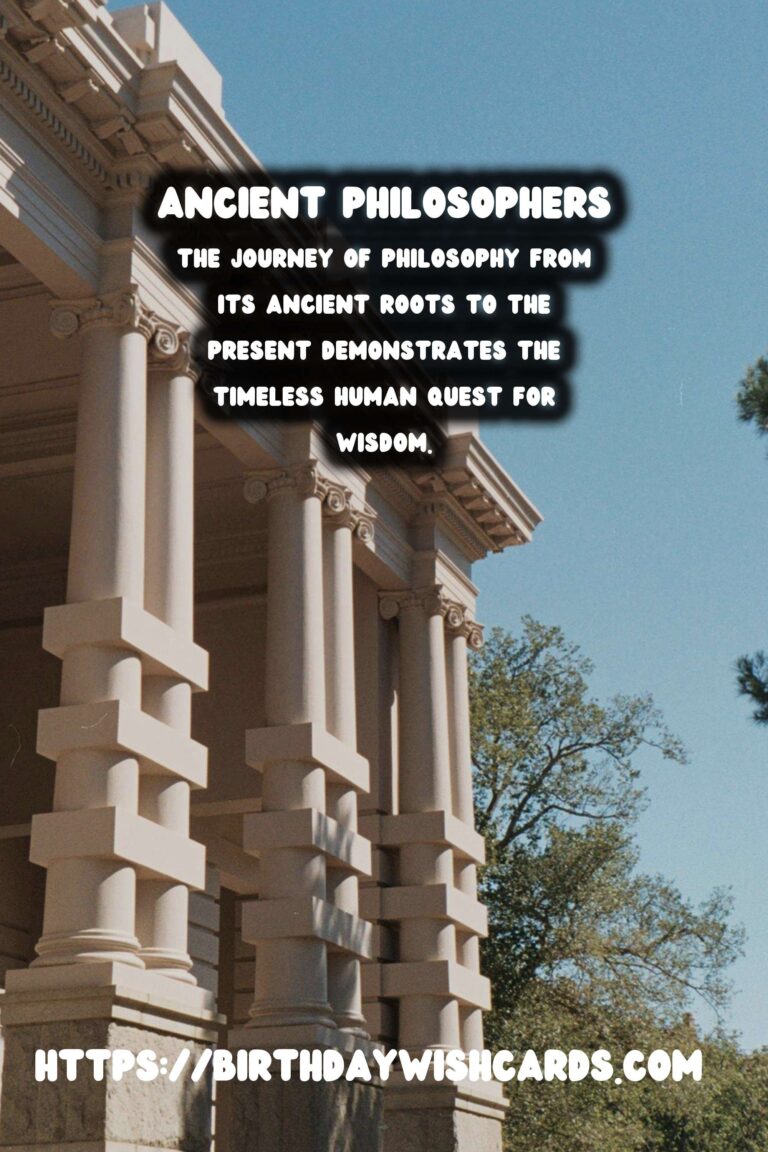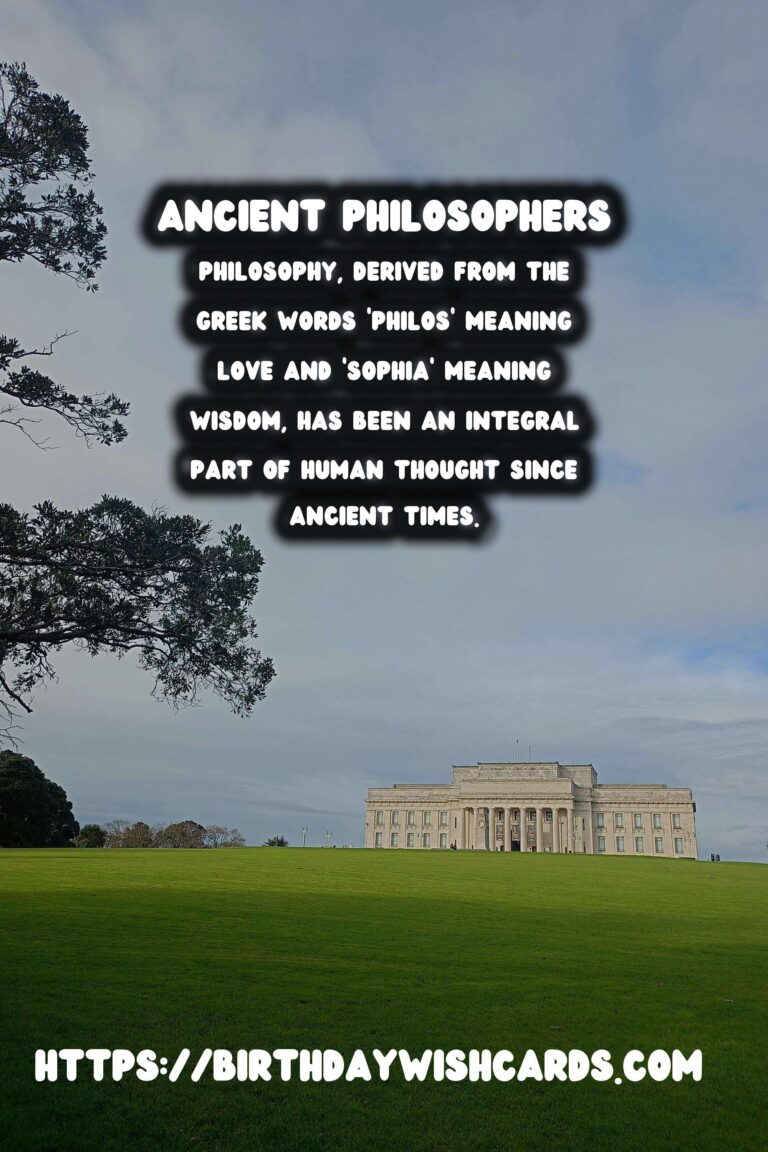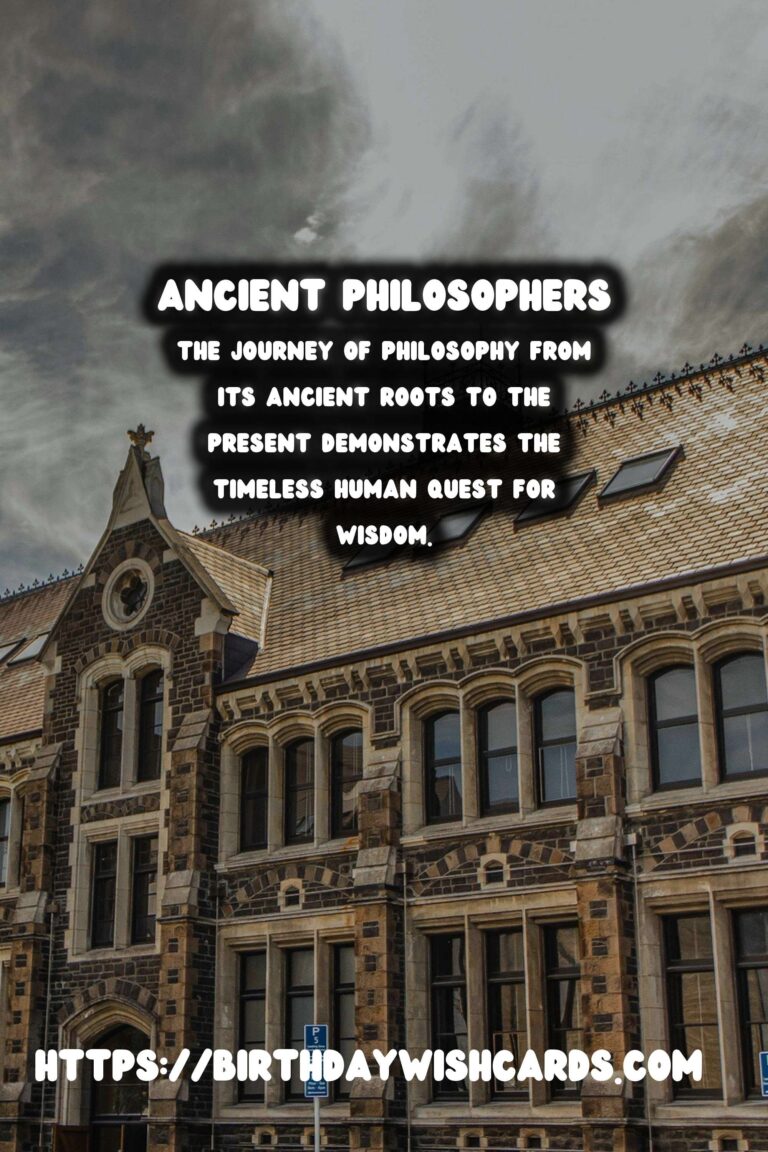
Philosophy, derived from the Greek words ‘philos’ meaning love and ‘sophia’ meaning wisdom, has been an integral part of human thought since ancient times. Philosophers sought to understand the world around them, pondering questions of existence, knowledge, values, reason, and language. This article delves into the origins of philosophy and explores the influential ideas of ancient thinkers.
Early Beginnings
The inception of philosophy is often traced back to the ancient civilizations of the East, including China, India, and Greece. While each culture approached philosophical questions differently, their intellectual pursuits laid the foundation for philosophical discourse.
Chinese Philosophy: Confucius and Laozi
Chinese philosophy emerged with thinkers like Confucius, who emphasized ethics, proper conduct, and social harmony. His teachings formed the basis of Confucianism, which has profoundly influenced Chinese society and government structures. In contrast, Laozi, the founder of Daoism, preached the importance of living in harmony with the Dao, or the fundamental force of the universe.
Indian Philosophy: Hinduism and Buddhism
India contributed significantly to philosophical thought through texts like the Vedas and Upanishads, which explored metaphysics and ethics. Gautama Buddha, the founder of Buddhism, introduced concepts of suffering, enlightenment, and the Middle Way, fostering a distinct philosophical and religious outlook.
Greek Philosophy: From Thales to Aristotle
Ancient Greek philosophy marks the beginning of Western philosophical tradition. Thales of Miletus is often credited as the first philosopher, famously declaring that water is the primary substance of all things. Following him, philosophers like Pythagoras, Heraclitus, and Democritus laid the groundwork for natural philosophy, abstract thinking, and ethical inquiry.
Socrates: The Father of Western Philosophy
Socrates, one of the most prominent Greek philosophers, revolutionized philosophy with his method of questioning and dialogue, seeking to arrive at definitions and ethical truths. His approach emphasized critical thinking, self-knowledge, and the exploration of moral concepts.
Plato: The World of Forms
A student of Socrates, Plato introduced the theory of Forms, suggesting that the physical world is a shadow of the true reality, which consists of ideal forms. His works, particularly ‘The Republic,’ discuss justice, the ideal state, and the role of philosophers as rulers.
Aristotle: The Systematic Philosopher
Aristotle, a student of Plato, diverged from his teacher by emphasizing empirical observation and categorizing knowledge into distinct fields such as biology, ethics, politics, and metaphysics. His work laid the groundwork for various scientific and philosophical disciplines.
The Impact of Ancient Philosophy
The ideas of these ancient thinkers have had a lasting influence on Western and Eastern philosophy. Their approaches to understanding reality, ethics, and governance continue to shape contemporary thought and inspire philosophical inquiry today.
The journey of philosophy from its ancient roots to the present demonstrates the timeless human quest for wisdom. Through the exploration of past thinkers and their ideas, we not only gain insight into their times but also reflect on their enduring relevance.
Philosophy, derived from the Greek words ‘philos’ meaning love and ‘sophia’ meaning wisdom, has been an integral part of human thought since ancient times. The journey of philosophy from its ancient roots to the present demonstrates the timeless human quest for wisdom. 









#Philosophy #AncientThinkers




